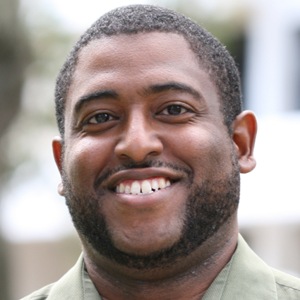Will Tyson is PI for Path Tech, an ATE targeted research project. He is an associate professor of sociology at the University of South Florida. Learn more about his project at
www.sociology.usf.edu/pathtech/.
Q: What advice do you have for PIs who want to pursue targeted research in technician education?
The Targeted Research on Technician Education strand of ATE is an ideal avenue for current ATE PIs looking to fund small projects to learn more about student outcomes resulting from prior activities. The best advice I have is to seek out scholars with backgrounds in social science and education, preferably with NSF experience, to partner with on a targeted research submission.
Q: You’ve published numerous articles on your research. What is your sense of what journal editors and reviewers are looking for when it comes to research on technician education?
I’m not sure journal editors and reviewers are actually looking for research on technician education. This is both a challenge and an opportunity. Most STEM education research generally ignores the “T” and focuses on traditional pathways to science, engineering, and mathematics degrees and careers. I think people know “good tech jobs” exist, but generally lack knowledge about the educational pathways to those jobs and the rich life stories of community college students in technician education programs.
Q: How do you see ATE research fitting within the NSF-IES Common Guidelines for Education Research and Development?
I think there are some challenges to fitting ATE research into the Common Guidelines. There are several research types and ATE researchers have to be careful to make sure the type they choose is the best fit for their research questions. The Guidelines are a good start for new investigators, but senior investigators should continue to build upon their work and use prior research to justify their new research ideas.
Q: Based on your experience as an NSF proposer and reviewer, what are some common mistakes when it comes to targeted research proposals?
Everyone should pay close attention to the goals of the Targeted Research on Technician Education track as outlined in the ATE program solicitation, which are to simulate and support research on technician education and build the partnership capacity between 2- and 4-year institutions to design and conduct research and development projects. All projects should focus on studying education through partnerships between 2- and 4-year institutions. In my experience, targeted research proposals tend to be led by 2-year college faculty or scholars from 4-year institutions or private research institutes. The 2-year personnel tend to lack the capacity to conduct targeted research due to lack of experience or personnel, as evidenced by their biosketches. On the other hand, 4-year personnel tend to lack familiarity with 2-year colleges and seek to use students as “guinea pigs.” Proposals often do not show that the scholar will be able to recruit student participants. Targeted research proposals should show clear evidence that 2- and 4-year institutions or private research institutes are going to work collaboratively.

Except where noted, all content on this website is licensed under a Creative Commons Attribution-NonCommercial-ShareAlike 4.0 International License.



 EvaluATE is supported by the National Science Foundation under grant number 2332143. Any opinions, findings, and conclusions or recommendations expressed on this site are those of the authors and do not necessarily reflect the views of the National Science Foundation.
EvaluATE is supported by the National Science Foundation under grant number 2332143. Any opinions, findings, and conclusions or recommendations expressed on this site are those of the authors and do not necessarily reflect the views of the National Science Foundation.